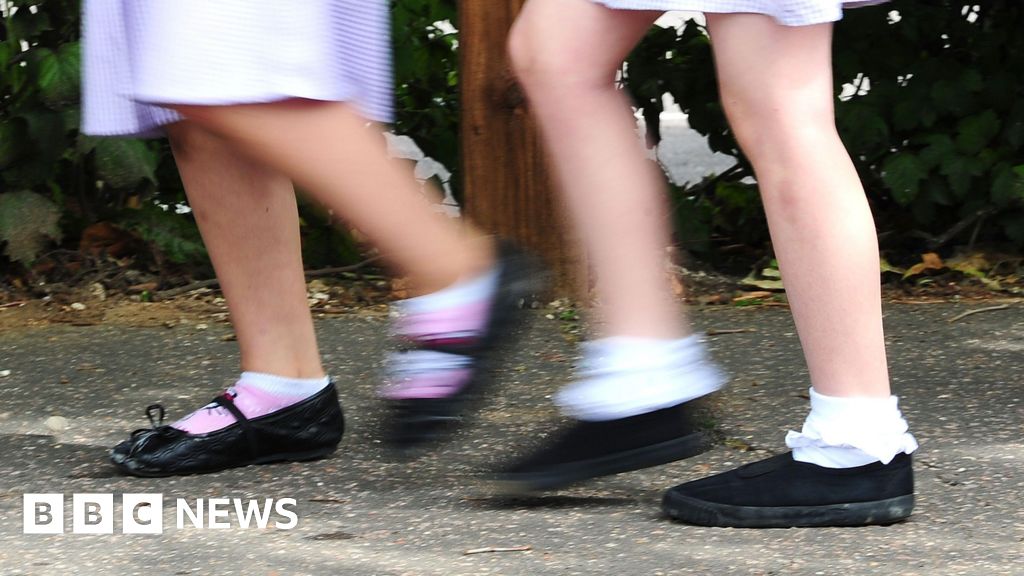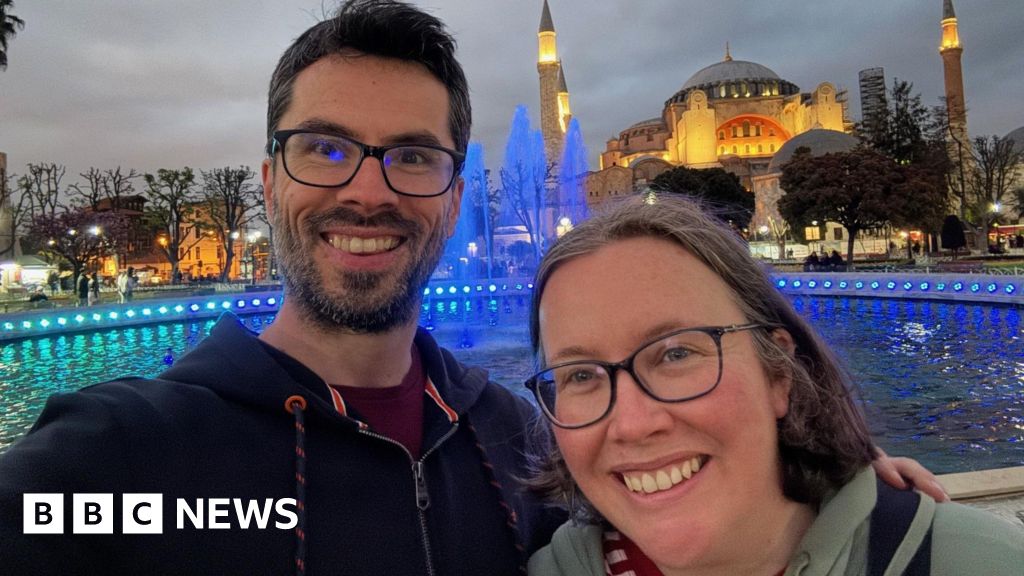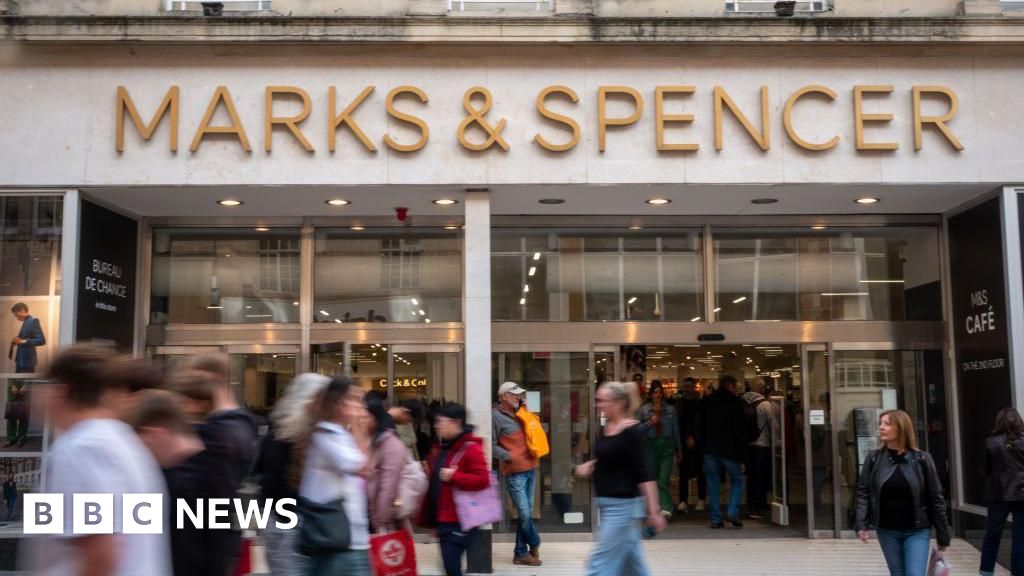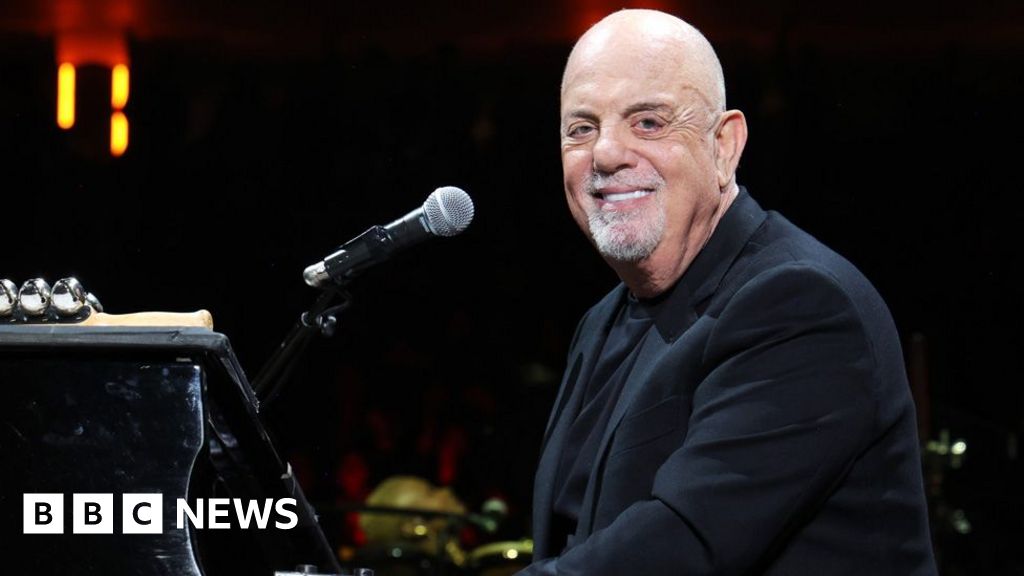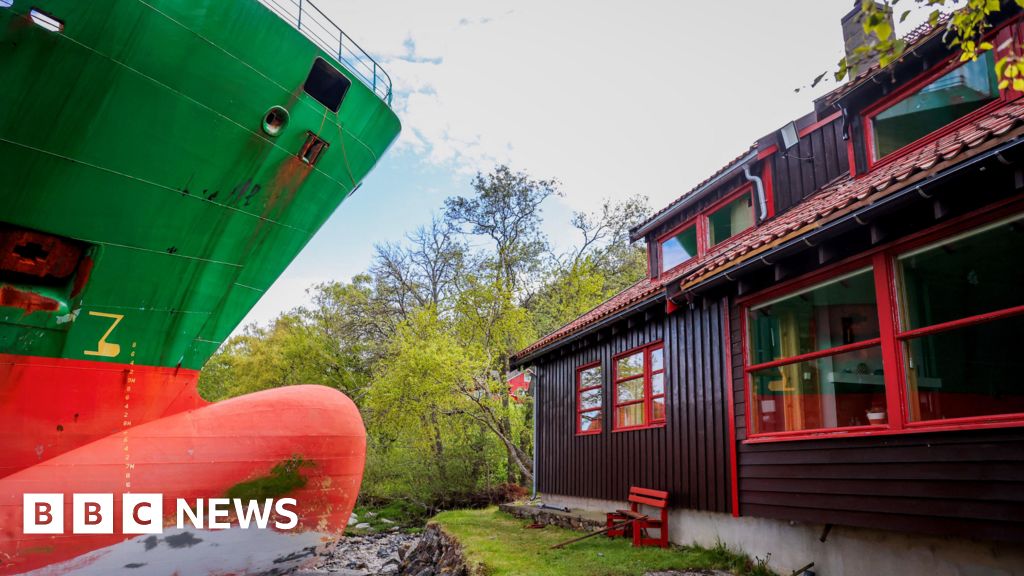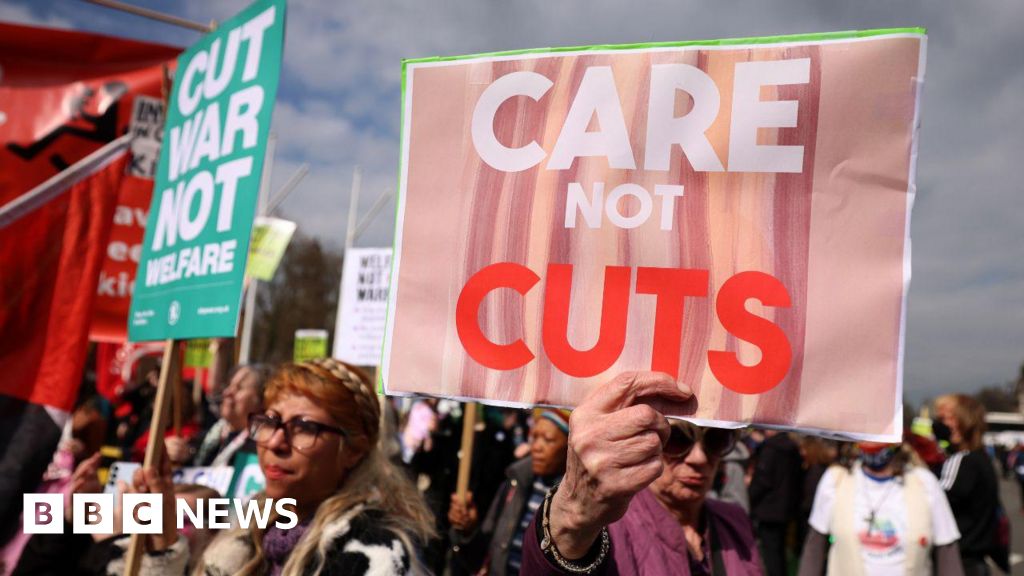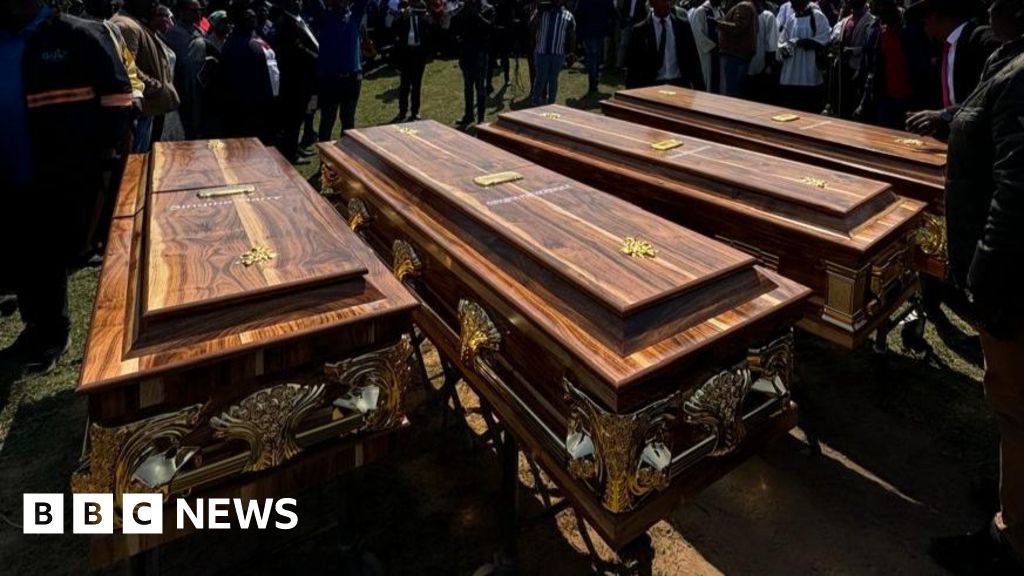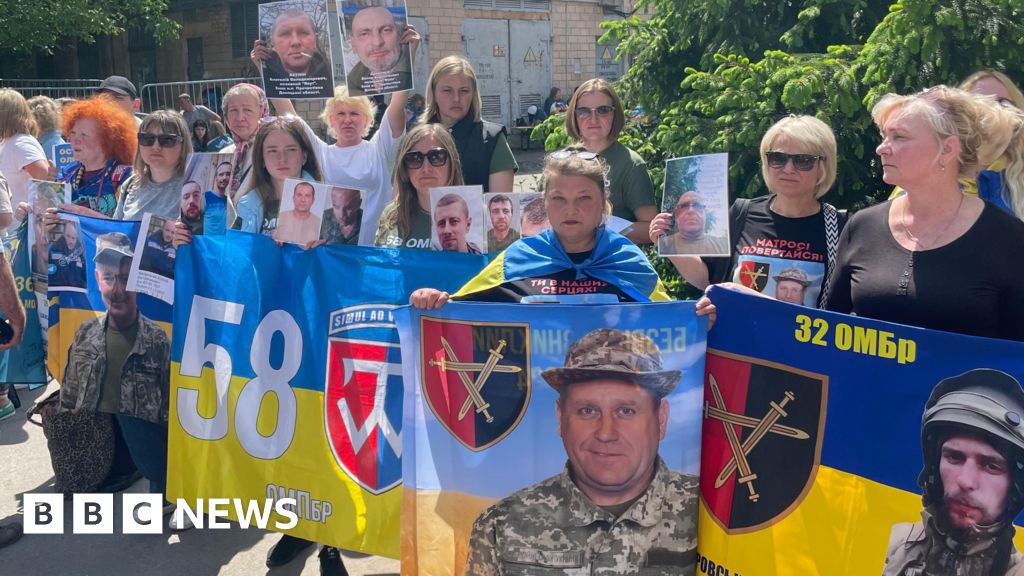Rushdie Abualouf
Gaza correspondent
Alice Cuddy
Reporting from Jerusalem

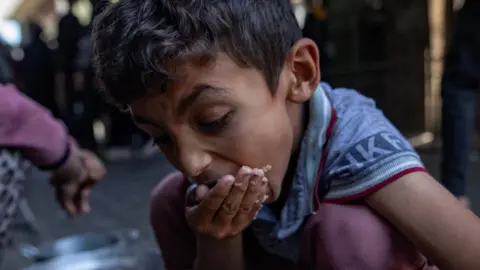 EPA
EPA
The limited amount of food that trickled into Gaza after an Israeli blockade was partly lifted has sparked chaotic scenes, as hunger continues to spread.
Bakeries distributing food were overwhelmed by crowds and forced to close on Thursday, and armed looters attacked an aid convoy overnight - sparking a firefight with Hamas security officials who, witnesses say, were then targeted by an Israeli drone strike.
The incident in central Gaza, recounted to BBC News by eyewitnesses, local journalists and Hamas officials, underscores the deteriorating security situation in Gaza, where governance has collapsed and lawlessness has spread.
A convoy of 20 trucks, coordinated by the World Food Programme (WFP) and carrying flour, was en route from the Kerem Shalom crossing to a WFP warehouse in the city of Deir al-Balah.
It was being escorted by six Hamas security officers when it was ambushed by five unidentified gunmen, who fired at the tyres of the vehicles and tried to seize the cargo.
The Hamas security team engaged the attackers in a brief firefight, witnesses told BBC News.
Shortly after the clash began, Israeli drones targeted the Hamas unit with four missiles, killing six officers and wounding others.

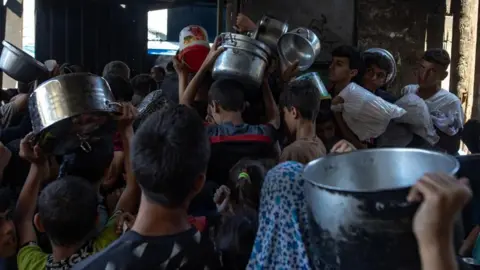 EPA
EPA
Hamas issued a statement condemning the attack as "a horrific massacre" and accused Israel of deliberately targeting personnel tasked with protecting humanitarian aid.
BBC News has contacted the Israel Defense Forces (IDF) for comment.
A small amount of food has been allowed to cross into Gaza this week: around 130 lorries carrying aid have crossed the border in the last three days, after an 11-week blockade was partly lifted by the IDF.
The UN says 500 to 600 trucks of supplies a day are needed in Gaza.
International agencies, including the UN and the WFP, have repeatedly warned that the growing insecurity is hampering the delivery of desperately needed food and medical supplies to the population - the majority of whom are displaced.
Israel says the blockade was intended to put pressure on Hamas to release the hostages still held in Gaza. Israel has also accused Hamas of stealing supplies, which the group has denied.
The WFP said 15 of its aid trucks were looted overnight on Thursday, and that "hunger, desperation and anxiety over whether more food aid is coming is contributing to rising insecurity". The organisation called on Israel to help ensure the safe passage of supplies.
Philippe Lazzarini, the head of UNRWA, an agency that supports Palestinian refugees, wrote on X that no one should be "surprised let alone shocked" that aid had been looted because the "people of Gaza have been starved [and] deprived of the basics including water and medicines for more than 11 weeks".
Earlier on Thursday, angry and hungry Palestinians crowded outside bakeries in Gaza in a desperate attempt to obtain bread, but the situation quickly descended into chaos, forcing distribution to halt.
It forced most bakeries to suspend operations, citing a lack of security.
Many residents across Gaza voiced growing frustration over the aid distribution method and criticised the WFP, which oversees food deliveries.
Some called for an immediate shift from distributing baked bread to handing out flour directly at a rate of one sack per family.
Locals argue that distributing flour would allow families to bake at home or in tents - which, they say, would be safer than waiting at the overcrowded aid centres.

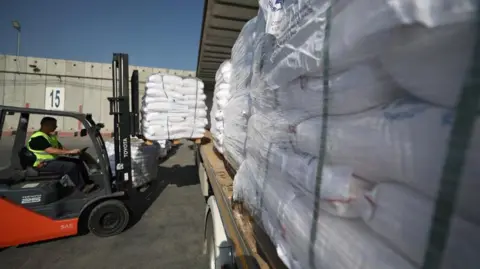 EPA
EPA
Palestinians on the ground have told of the deepening humanitarian crisis and the collapse of basic services facing people living among the fighting or forced from their homes, as the IDF continues to ramp up its military operations against Hamas.
From a displacement camp in southern Gaza's al-Mawasi, Abd al-Fatah Hussein told BBC News over WhatsApp that the situation is getting worse due to the number of people in the area.
The father-of-two said there is "no room" in al-Mawasi, where people ordered by the Israeli military to leave their homes are being told to go for safety.
"There is no electricity, no food, insufficient portable water, and no available medicine," he said.
"The repeated air strikes, especially during the night, add to the suffering."
He described the aid trucks coming in as a "drop in the ocean of Gaza's needs".
When he announced some supplies would finally be allowed into the strip earlier this week, Israeli Prime Minister Benjamin Netanyahu said only a "basic amount" would be able to cross.
Humanitarian organisations have warned the amount of food entering Gaza in recent days is not close to what is needed to feed the 2.1 million people living there, while the UN has said about 500 lorries entered the territory on average every day before the war.
Widespread famine, humanitarian groups have warned, looms over Gaza.
UN Secretary General Antonio Guterres said 400 trucks had been cleared to enter Gaza this week, but supplies from just 115 had been collected. He said nothing had "reached the besieged north" so far.
While some flour, baby food and medical supplies had made it into Gaza, and some bakeries in the south had begun operating again, Guterres said that amounted to a "teaspoon of aid when a flood of assistance is required".
"The supplies – 160,000 pallets, enough to fill nearly 9,000 trucks – are waiting," he added.
Rida, a midwife with charity Project HOPE in Deir al-Balah, said women come to her clinic suffering from fainting, having sought medical help without eating breakfast.
Many of them eat only one meal a day and subsist on high energy biscuits given by the charity, she said.

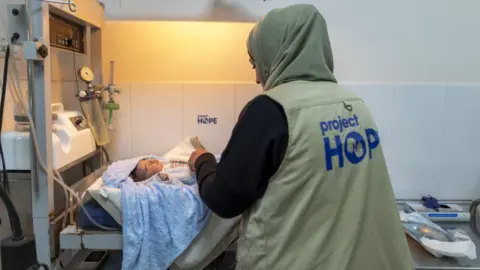 Project HOPE
Project HOPE
"Due to malnutrition they are always telling us, 'my baby cannot take enough supplement from my breast… my baby won't stop crying… they always need to be breastfed, but my breast is empty'."
Teenager Saba Nahed Alnajjar lives in Khan Younis, where the IDF ordered a mass evacuation earlier this week ahead of what it said would be an unprecedented military operation there.
She said her family has stayed in their partially destroyed home.
"An evacuation order has been issued for our area, but we have not been displaced because we have nowhere else to go," she said.
"There are not many citizens in the area... The displaced are sleeping in the street and there is no food.
"The conditions are deteriorating and very difficult."
Speaking over WhatsApp messages - often the only way to speak to people in Gaza, which journalists are blocked from entering by the IDF - she said the "bombing continues in a brutal manner".
She and her family have little left, Saba said, adding: "We have no food, no flour - no basic necessities of life."

 7 hours ago
4
7 hours ago
4
